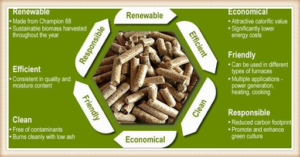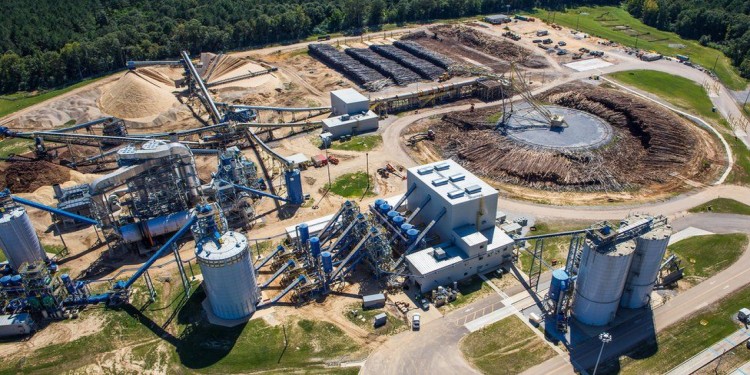In news– The Central Pollution Control Board (CPCB) revised the financial grants for biomass pellet manufacturing units in March 2023.
What are biomass pellets?
- Biomass pellet is one kind of biofuel resource. Bio-pellets is commonly made by biomass pellet machine with the biomass materials.
- Biomass pellets are of two kinds — torrefied and non-torrefied.
- Biomass, if processed at 250-350°C in the absence of oxygen, leads to the formation of torrefied biomass.
- Whereas, in the case of non-torrefied pellets, biomass is shredded, grinded and sent to a pellet reactor, where it is compressed into pellet form with the help of binders such as sawdust, bagasse, molasses, starch and others.
- In India, it is mandatory to use biomass or agricultural residue as combustion fuel along with coal in coal-fired thermal power plants.
- The biomass used for co-combustion in the power plants is processed and refined into pellets with a calorific value comparable to coal.
Raw Material for Bio-pellets-
- Agricultural waste:Crop stalk and straw material, rice husk, cotton stalk, coffee husk, alfalfa straw, coconut shell, palm shell, sugarcane bagasse, etc.
- Forestry residue: Sawmill residue, branches, bark, leaves, etc.
- Solid waste: Junk paper, waste plastic, cardboard,etc.

The CPCB grants-
- It has increased the budget for manufacturing non-torrefied biomass pellets to 28 lakhs from 14 lakhs, as mentioned in the guidelines issued in October, 2022.
- The cost of machinery with a production capacity of one TPH is approximately Rs 1 crore, said industry experts. This implies that grants would cover only 28 per cent of the capital investment on machinery as opposed to the claim by the CPCB to fund 40 per cent of the capital cost.
- The revised guidelines have pitched the capital for setting up a palletisation unit at Rs 70 lakhs with machinery costing Rs 35 lakhs and the remaining Rs 35 lakhs for air pollution control device and automation unit.
- In the case of manufacturing torrefied biomass, no changes are introduced in the fund allocation in the revised CPCB guidelines.
- As previously, these units are entitled to receive Rs 28 lakhs per TPH of production capacity.
Source: Down To Earth













